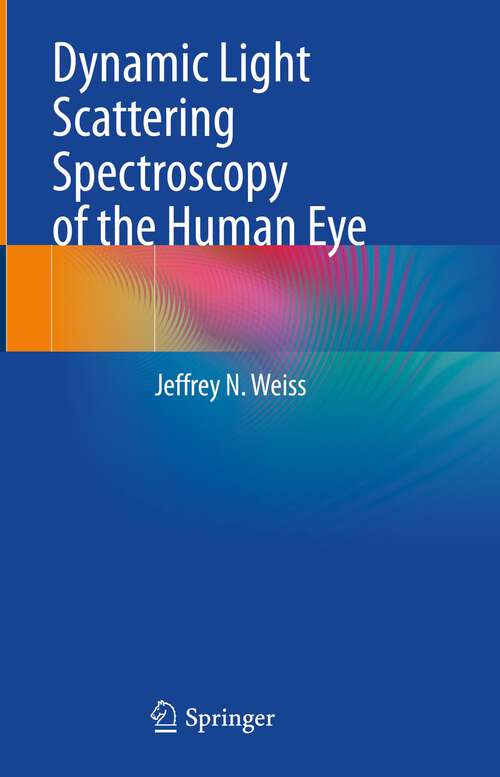
Dynamic Light Scattering Spectroscopy of the Human Eye
Eye-related medical conditions
Synthetic audio, Automated braille
Summary
Blindness or serious vision impairment is one of the most feared disabilities known to humankind. A 2016 report compiled by the National Eye Institute (NEI) of the National Institutes of Health (NIH) and Prevent Blindness America states that although half… of all blindness can be prevented, the number of people who suffer vision loss continues to increase. The technique of dynamic light scattering (DLS) was developed by physicists in the late 1960s to early 1970s. DLS is now emerging as a potential ophthalmic tool, making possible studies of virtually every tissue and fluid comprising the eye, thus pushing the envelope for broader applications in ophthalmology. This book presents a comprehensive review of the application of light scattering in clinical use. It is the first of its kind, offering insight to how DLS can be applied to the human eye as well as animals. Chapters discuss DLS in neurological diseases, including protocols, informed consent, and patents. Dynamic Light Scattering Spectroscopy of the Human Eye is a must-have resource for physicians, engineers, and physicists interested in the clinical application of DLS to diagnose and potentially treat medical conditions in a non-invasive, quantitative and novel way.